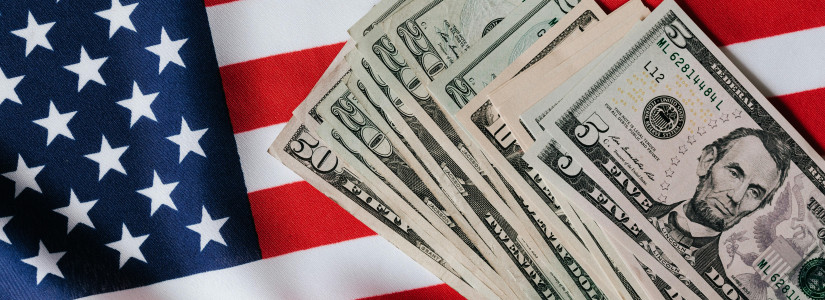Inflation Can Be A Pain, But It Doesn't Have to Be The End of The World
Inflation has been hitting everyday people hard and while we've had to deal with it for a long time already, we're probably going to have to suffer through it for quite a while longer.
Despite how disastrous it can be to people's savings, budgets, and overall financial situations, inflation doesn't have to completely wreck your life; there are numerous ways you can mitigate its effects.
Here are some tips for how to deal with inflation
Put Your Money In Property
Inflation isn' just problematic because it eats away at your buying power over time, it also causes uncertainty in markets and can often cascade into hyperinflation, which has the potential to obliterate people's life savings in a matter of months.
A great way to combat this is to put your money in land, which is basically an inflation-proof investment. Land, housing, etc. is necessary in pretty much any economy and the value of land-based property is almost never negatively affected by inflationary pressures; if anything, it can become more valuable.
Buy in Bulk And Early On, If You Can
Inflation really hits wallets hard when it comes to everyday purchases, like food, gas, and toiletries, which are purchases people typically make on a daily or weekly basis. As inflation causes the inputs and transportation of pretty much everything to increase in price, it also increases the end cost of what you buy.
These price increases only increase over time, which is why it's absolutely imperative you purchase items you know you'll need in the long run in bulk. By purchasing things you know you'll use no matter what, you can preserve much of your buying power over the long-term.
This can include buying things like flour, rice, toothpaste, toilet paper, paper towels, and fuel. In the case of gas, it will probably be necessary to buy fuel stabilizer as well, if you want it to last more than a couple months.
Consider Investing in Commodities
During times of inflation, one of the best things you can put your money into is commodities, which is to say resources that are used in the creation of other, more complex things people use, such as oil, iron ore, or wheat.
Commodities tend to do quite well during periods of inflation since money loses value rapidly. Commodities, however, which everyone uses in one form or another no matter what, stay relatively valuable as people still need to eat, put gas in their cars, and use everyday items.
Inflation also limits people's overall purchase options, so more basic purchases, rather than abstract, superfluous ones, become top priority, which ends up maintaining the stability of commodity value.
Put Your Money in Stocks, But Carefully
Using money as a primary store of value during inflation is an absolutely terrible idea and a great way to curb this issue is to invest in stocks.
Stocks are practically the go-to way to invest your money and inflation makes their value much greater than during normal circumstances.
The key consideration here, though, is the effect inflation has on company and stock health. Some industries are very negatively impacted by inflation, while others are barely grazed by it. Generally speaking, the best stocks to look for are ones that deal with products and services that are essential in nature. Stocks in companies that deal with things that are "gimmicky" or are related to disposable income are definitely not good choices.
Purchase Bonds
If you're looking for something simple to preserve your money, then it's a good idea to consider savings bonds, specifically government ones.
Savings bonds from reputable sources are a pretty hands-off way to guarantee the preservation of your savings over a multi-year, or even multi-decade, period.
Preparing Yourself
Inflation is difficult for everyone, no matter who they are, but it's important to know there are a variety of strategies you can use to help combat it. Investing your money wisely, finding the right stores of value, and making sensible purchases can do a great deal to lessen the financial burdens you face.
Related Articles
Stay ahead of the curve











